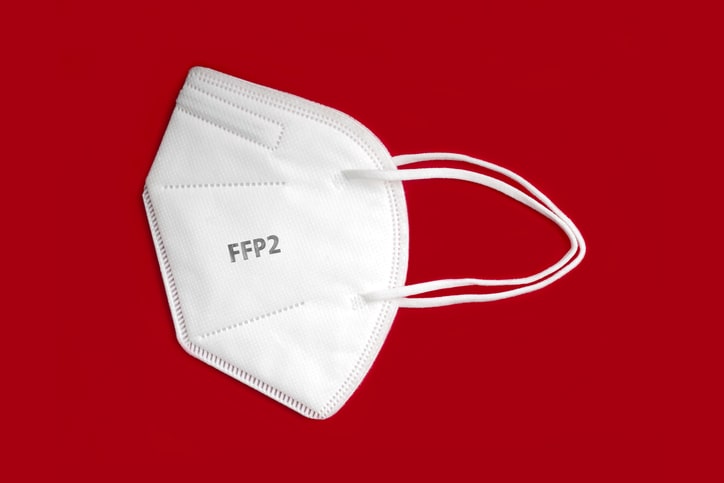
In 2018, the estimated prevalence of pediatric chronic kidney disease (CKD) was 2.7 cases per 1000 children. There are guidelines and recommendations for the management of children with CKD; however, they are based primarily on limited observational data, small clinical trials, and input from nephrology health care providers. Input from patients and their parents/caregivers is not generally included in the formation of treatment guidelines.
In December 2018, a multidisciplinary group of nephrology health care professionals, children and adolescents living with CKD, and their parents/caregivers took part in a scientific workshop sponsored by the National Kidney Foundation on children with CKD. The workshop was supported by Horizon Pharma and Leadiant Biosciences.
The workshop was designed to develop clinical recommendations for the clinical care of pediatric patients with CKD specific to five topics: (1) addressing the needs of patients and parents/caregivers; (2) modifying the progression of CKD; (3) clinical management of CKD-mineral and bone disorder (CKD-MBD) and growth retardation; (4) clinical management of anemia, hypertension, and cardiovascular disease; and (5) transition and transfer of pediatric patients to adult nephrology care.
In a report in the American Journal of Kidney Diseases [2023;81(4):466-474], Bradley A. Warady, MD, and colleagues describe the key clinical recommendations generated from the workshop. The report also highlighted the recommendations deemed most feasible for implementation by the workshop attendees.
Addressing the Needs of Patients and Caregivers
Addressing the needs and preferences of families during all stages of the disease is key, and may require training the health care team in strategies designed to optimize communications between the clinician and the family. The workshop participants stressed the need to build rapport and trust between the clinician and the family to best facilitate communication between the two groups.
Access to multidisciplinary care and patient navigators to help families with the complexities of the health care system were also recommended. Parents universally shared a desire for information to be presented in an understandable format on all aspects of their child’s disease, including both diagnosis and treatment. They also expressed the need for additional resources for their children, such as referrals to a dietician and social worker. Access to peer support groups and mentoring programs for families was also requested, as well as programs addressing the mental health of families.
Modifying CKD Progression
The workshop attendees stressed the need for identification of patients at risk for CKD progression and effective management of those patients, including screening for modifiable risk factors. Treatment and monitoring of increased blood pressure and proteinuria were also deemed important due to their association with CKD progression. Early recognition of the nephrotoxic potential of medications prescribed for children with CKD, avoidance of those medications when possible, and minimization of the duration of use when were also recommended.
Aggressive treatment of dehydration and possible temporary discontinuation of renin-angiotensin-aldosterone system (RAAS)-blocking medications were recommended to prevent or decrease the risk of acute kidney injury in pediatric CKD. Other recommendations related to CKD progression included providing information regarding the possible initiation of kidney replacement therapy for patients with CKD stage 3B or higher to avoid the need for urgent dialysis.
Clinical Management of CKD-MBD
Abnormalities in the regulation of bone and mineral metabolism in the setting of pediatric CKD can lead to growth inhibition. Workshop attendees recommended making clinical management decisions based on trends in blood testing, rather than values at single time points.
Updated Kidney Disease: Improving Global Outcomes clinical practice guidelines for the treatment of CKD-MBD highlight the importance of diagnosing bone abnormalities, stabilizing serum phosphate and calcium levels, and initiating treatment to correct increased parathyroid hormone levels. Workshop attendees recommended that the daily intake of calcium and the serum calcium levels be based on normative values for age, and that 25-hydroxyvitamin D levels should meet current published recommendations.
Other recommendations included correction of metabolic acidosis in pediatric patients with CKD; consultation with a renal dietitian to support appropriate mineral, calcium, and protein intake; and targeting normal age-related serum phosphate levels and the use of phosphate binders. The administration of recombinant human growth hormones after addressing other modifiable factors to treat short stature and the importance of exercise were also included in the recommendations.
Management of Comorbidities
Despite the availability and efficacy of erythropoiesis-stimulating agents, pediatric patients with moderate to severe CKD commonly experience anemia. Because anemia in children is associated with adverse outcomes, the workshop attendees stressed the need to maintain hemoglobin levels at the normal level for the age and sex of the patient.
Attendees also emphasized the importance of identification of hypertension and aggressive treatment in children with CKD. Because masked hypertension may contribute to cardiovascular disease in children, attendees recommended the use of ambulatory blood pressure monitoring to identify and monitor high blood pressure in children with CKD, as well as blood pressure screening at every office visit and targeting office-measured blood pressure to less than the 90th percentile in healthy children.
RAAS blockers were identified as preferred antihypertensive agents for pediatric patients with CKD and hypertension. Workshop attendees recommended that RAAS blockers be prescribed as tolerated in patients with no hyperkalemia, syncope, or marked increase in serum creatinine levels. Other recommendations called for implementation of lifestyle and dietary interventions to aid in blood pressure management.
Transition to Adult Care
Recommendations included initiation of the transfer process in early adolescence for patients with CKD stage 3 or higher and/or progressive CKD, and that parents/caregivers be included in the process. The transition process should be guided by a transition curriculum, and joint pediatric and adult nephrology transition clinics should be held to enhance the transition process. Because pediatric patients with CKD are commonly treated by multidisciplinary health care teams, staggering transfer between various providers was recommended to facilitate continuity of care.
Conclusions
The authors summarized the recommendations, saying, “This compilation of recommendations was designed to improve the clinical care of children with CKD. The recommendations incorporate the experience and opinions of a diverse group of pediatric CKD health care providers in addition to considerations from the perspectives of the patients and their parents/caregivers for whom the recommendation are made. Ideally, this information will be incorporated by clinicians into pediatric nephrology practices and will not only further stimulate shared decision-making, but also enhance recognition of the education, advocacy, and other actions necessary to facilitate improved care for children with CKD.”
Takeaway Points
- The National Kidney Foundation hosted a workshop with a multidisciplinary group of physicians, patients, and parents/caregivers of children with chronic kidney disease (CKD) to develop recommendations for the management of pediatric CKD.
- The workshop addressed five broad topics: addressing the needs of patients and parents/caregivers; modifying CKD progression; clinical management of CKD-mineral bone disorder; clinical management of anemia, hypertension, and cardiovascualr disease; and transfer to adult nephrology care.
- The recommendations were designed to increase recognition of the education and advocacy needed to improve care for children with CKD.







 © 2025 Mashup Media, LLC, a Formedics Property. All Rights Reserved.
© 2025 Mashup Media, LLC, a Formedics Property. All Rights Reserved.